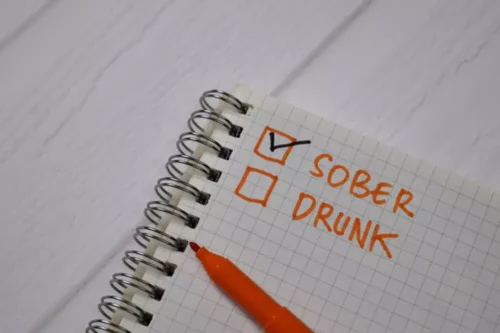
The brain damage caused by wet brain syndrome can only be minimized, not reversed. Seeking medical treatment is the first step of the treatment process for wet brain syndrome. As part of the treatment for wet brain syndrome, you will be given additional thiamine – usually in an IV or supplemental form – to help increase your levels. Over time as your thiamine levels increase and stabilize, you may notice an improvement in your symptoms.
Prognosis of Patients with Wet Brain

Collaborating with esteemed organizations like Epiphany Wellness and Ocean Recovery, Amanda has produced valuable and enlightening content that empowers individuals on their path to… If the patient is diagnosed during the Wernicke’s encephalopathy stage, some symptoms may be reversible with prompt vitamin B1 treatment. However, if the condition has progressed to Korsakoff’s syndrome, the symptoms are generally not reversible. Other vitamins and supplements which will help your body more effectively produce and utilize thiamine might also be recommended by your doctor.
- You won’t notice an improvement in your symptoms, but you won’t notice a worsening of your symptoms.
- Wet brain is a severe disorder that needs early diagnosis and adequate treatment.
It Is More Common Than You Think
We aim to support the widest array of browsers and assistive technologies as possible, so our users can choose the best fitting tools for them, with as few limitations as possible. This website utilizes various technologies that are meant to make it as accessible as possible at all times. We utilize an accessibility interface that allows persons with specific disabilities to adjust the website’s UI (user interface) and design it to their personal needs. The lessening of Wernicke Encephalopathy symptoms is not a sure cause for celebration. Often, the mental symptoms of Wernicke Encephalopathy Syndrome can lessen, only to be replaced by Korsakoff Amnesic Syndrome.

Korsakoff’s psychosis
The term “encephalopathy” describes a disease in which the functioning of the brain is affected by a condition. In Wernicke’s encephalopathy, the functioning of your brain is affected by a severe lack of thiamine. Wernicke-Korsakoff syndrome is a type of dementia that is caused by a thiamine deficiency.

Treatment Programs for Alcohol Addiction
Wernicke-Korsakoff Syndrome can be diagnosed through a combination of clinical symptoms, patient history, and diagnostic tests such as vitamin B1 levels and brain imaging studies. The medical history can include everything from lifestyle to alcohol use to nutrition. Tests for vitamin B1 and erythrocyte transketolase mush brain activity, which are both reduced by WK Syndrome, will be performed. It’s one of the most common forms of ARBD and its technical term is Wernicke-Korsakoff Syndrome (WKS). Stopping drinking may slow the progression of Wernicke Korsakoff Syndrome and improve the chronic symptoms that come with it.
- The treatment at this stage comes in the form of thiamine injections, and complete alcohol detox must be committed to.
- Within 7 days, endothelial cells malfunction, leading to neuron death and increased permeability of the blood-brain barrier (high-risk factors for stroke).
- What people tend to not think about, or might not even know about, is a condition known as wet brain.
- Once the signs of the first part of the wet brain syndrome diminish, a person can develop the symptoms of Korsakoff’s psychosis.
- About 80% of people with alcohol use disorder have a thiamine deficiency, and up to 2% of the total U.S. adult population has Wernicke-Korsakoff syndrome.

You won’t notice an improvement in your symptoms, but you won’t notice a worsening of your symptoms. If you get proper medical care when you are in the early stages of wet brain syndrome, the symptoms can be reversed. However, if the disease is left to progress, the symptoms cannot be reversed. Wet brain syndrome is one lesser-known side effect among all these well-known ones. You must contact a drug rehab center if you or someone you care about suffers from alcohol or drug addiction. Drug rehab centers are medical facilities designed to help patients with addictive disorders.
Signs and symptoms
What is Wet Brain? About Wernicke-Korsakoff Syndrome

